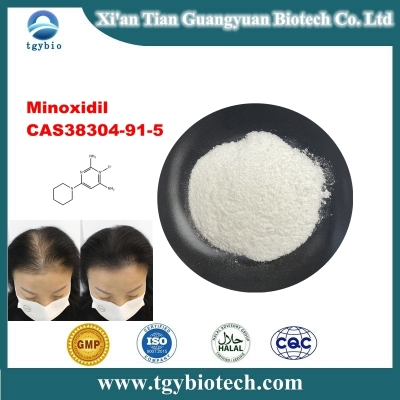-
Categories
-
Pharmaceutical Intermediates
-
Active Pharmaceutical Ingredients
-
Food Additives
- Industrial Coatings
- Agrochemicals
- Dyes and Pigments
- Surfactant
- Flavors and Fragrances
- Chemical Reagents
- Catalyst and Auxiliary
- Natural Products
- Inorganic Chemistry
-
Organic Chemistry
-
Biochemical Engineering
- Analytical Chemistry
-
Cosmetic Ingredient
- Water Treatment Chemical
-
Pharmaceutical Intermediates
Promotion
ECHEMI Mall
Wholesale
Weekly Price
Exhibition
News
-
Trade Service
Nicardipine is a calcium channel blocker medication that is used to treat a variety of cardiovascular conditions, such as hypertension and angina.
It is also used to prevent migraines and to treat certain types of heart arrhythmias.
In the chemical industry, nicardipine is used as an intermediate in the production of other pharmaceuticals and chemicals.
The production of nicardipine involves several steps, including synthesis, purification, and formulation.
The synthesis of nicardipine typically involves the reaction of a series of chemicals, including diphenylamine, nitroethane, and ethyl acetate.
The resulting compound is then purified through a series of chromatography and crystallization steps to remove any impurities.
The purified nicardipine is then formulated into the final product, which may be in the form of a tablet, capsule, or liquid.
The formulation process involves mixing the nicardipine with other ingredients, such as binders, fillers, and coatings, to create a stable and effective medication.
The production of nicardipine requires strict quality control to ensure that the final product is safe and effective.
Quality control includes testing the raw materials and finished products for their purity, potency, and stability.
This testing may involve techniques such as spectroscopy, chromatography, and microbiological testing.
The production of nicardipine is a complex process that requires a high level of technical expertise and specialized equipment.
In addition to the chemical synthesis and purification steps, the production process also involves the use of advanced equipment, such as reaction vessels, centrifuges, and granulators, to ensure that the final product is of the highest quality.
The use of nicardipine in the treatment of cardiovascular conditions has been well-documented in clinical trials and has shown to be effective in reducing blood pressure and improving heart health.
As such, the demand for nicardipine is expected to grow in the coming years, which will likely drive further development and innovation in the production process.
In conclusion, the production of nicardipine is a complex process that involves several steps, including synthesis, purification, and formulation.
The production process requires strict quality control to ensure the safety and efficacy of the final product.
As demand for nicardipine grows, it is likely that the production process will continue to evolve and improve to meet this demand.







